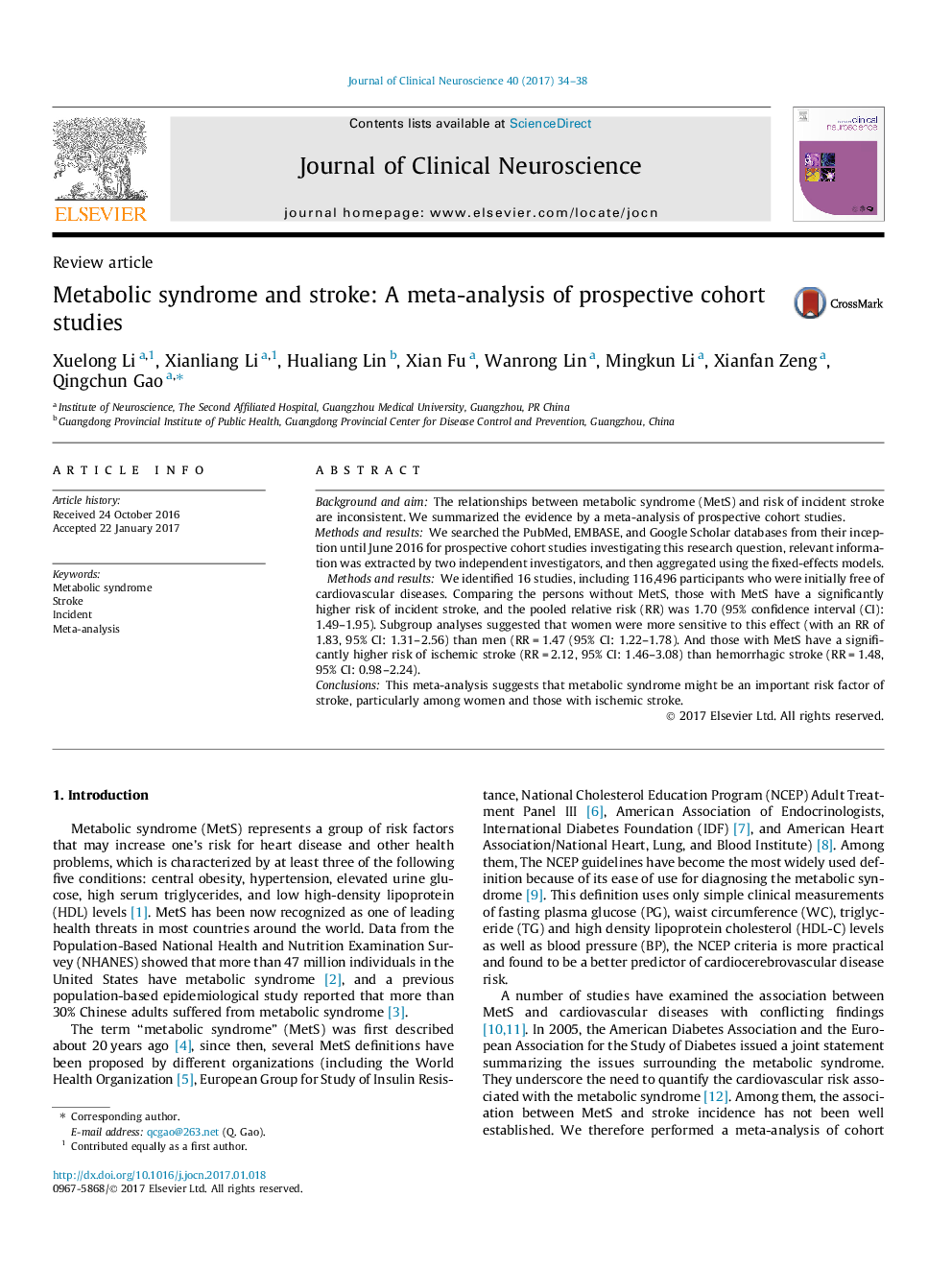| Article ID | Journal | Published Year | Pages | File Type |
|---|---|---|---|---|
| 5629689 | Journal of Clinical Neuroscience | 2017 | 5 Pages |
â¢A total of 116,496 participants were included in these prospective cohort studies.â¢All the enrolled studies took the internationally-recognized definition of MetS.â¢We evaluated the association between the five components of MetS and stroke risk.â¢Subgroup analyses were conducted by sex, country, study duration and stroke subtype.
Background and aimThe relationships between metabolic syndrome (MetS) and risk of incident stroke are inconsistent. We summarized the evidence by a meta-analysis of prospective cohort studies.Methods and resultsWe searched the PubMed, EMBASE, and Google Scholar databases from their inception until June 2016 for prospective cohort studies investigating this research question, relevant information was extracted by two independent investigators, and then aggregated using the fixed-effects models.We identified 16 studies, including 116,496 participants who were initially free of cardiovascular diseases. Comparing the persons without MetS, those with MetS have a significantly higher risk of incident stroke, and the pooled relative risk (RR) was 1.70 (95% confidence interval (CI): 1.49-1.95). Subgroup analyses suggested that women were more sensitive to this effect (with an RR of 1.83, 95% CI: 1.31-2.56) than men (RRÂ =Â 1.47 (95% CI: 1.22-1.78). And those with MetS have a significantly higher risk of ischemic stroke (RRÂ =Â 2.12, 95% CI: 1.46-3.08) than hemorrhagic stroke (RRÂ =Â 1.48, 95% CI: 0.98-2.24).ConclusionsThis meta-analysis suggests that metabolic syndrome might be an important risk factor of stroke, particularly among women and those with ischemic stroke.
